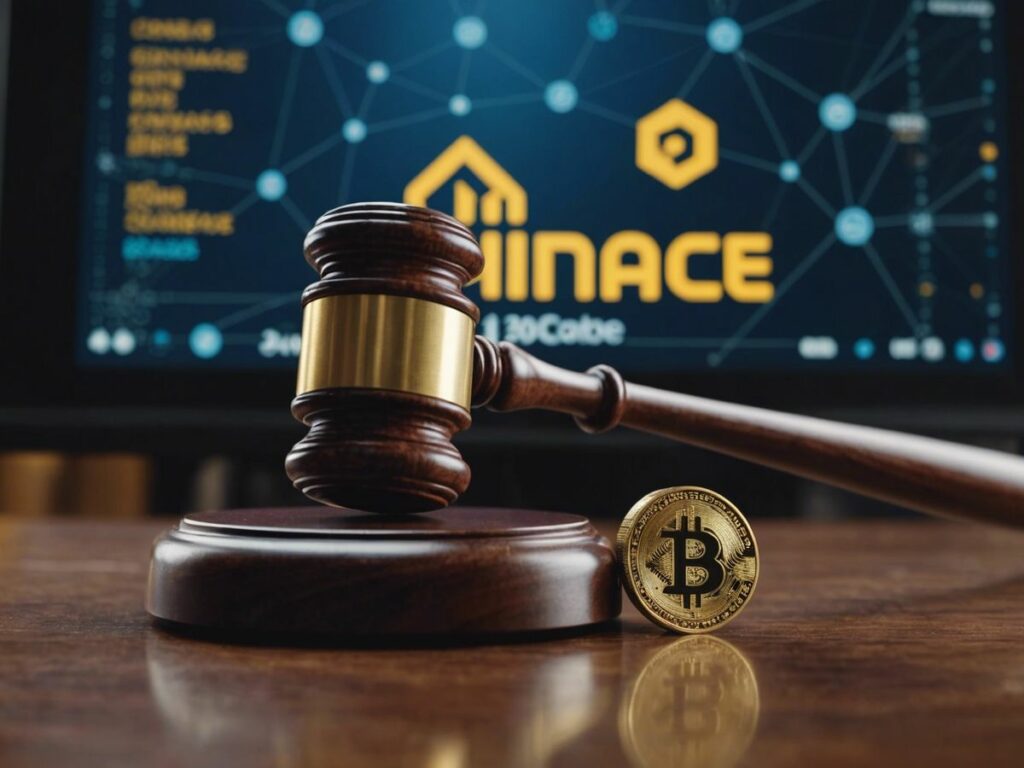In 2023, the U.S. Securities and Exchange Commission (SEC) initiated lawsuits against the world’s three largest crypto exchanges – Binance, Coinbase, and Kraken – marking the beginning of a stringent regulatory era for the previously unrestrained crypto industry.
Key Takeaways
- The SEC has filed lawsuits against Binance, Coinbase, and Kraken for various regulatory violations.
- The lawsuits are expected to extend into 2024, with significant financial and operational impacts on the exchanges.
- The crypto market has shown resilience despite the legal challenges.
SEC vs. Binance: Accusations and Consequences
On June 5, 2023, the SEC filed a lawsuit against Binance, accusing the exchange of several violations, including:
- Running an unregistered exchange and allowing U.S. investors to trade cryptocurrencies.
- Selling Binance-owned cryptos BNB and BUSD stablecoin.
- Offering staking and profit-generating programs like BNB Vault and Simple Earn.
- Misrepresenting investor protection controls on the Binance.US platform.
- Using customer funds for its own interests.
- Engaging in wash trading to inflate trading volumes on Binance.US.
The allegations against Binance are severe, drawing parallels to the now-defunct FTX exchange. As of late November 2023, the lawsuit remains unresolved, with Binance facing a $4.3 billion fine and the resignation of its CEO, Changpeng Zhao.
SEC vs. Kraken: Commingling Complaints
On November 20, 2023, the SEC filed a complaint against Kraken, accusing it of operating as an unregistered securities exchange, broker, dealer, and clearing agency. The SEC also alleged that Kraken commingled customer funds for operating expenses, posing a significant risk to its customers. Kraken has denied the charges and intends to defend itself in court.
SEC vs. Coinbase: Compliance Issues
A day after the Binance lawsuit, the SEC charged Coinbase with operating as an unregistered securities exchange, broker, and clearing agency. The SEC criticized Coinbase’s staking-as-a-service program and its marketing campaigns that positioned the exchange as compliant. Coinbase has responded by seeking to dismiss the lawsuit, arguing that the SEC has not cooperated in identifying specific securities on its platform.
Market Reactions
Despite the lawsuits, the cryptocurrency market has shown resilience. Bitcoin (BTC) and Ether (ETH) quickly rebounded from initial sell-offs. However, cryptocurrencies identified as securities by the SEC, such as BNB, ADA, SOL, MATIC, and ATOM, experienced selling pressure.
Future of the Crypto Industry
The crypto industry is bracing for more stringent regulations. Experts suggest that U.S. centralized exchanges may limit their offerings to Bitcoin and Ether, while international exchanges could list tokens not available in the U.S. There is also a push within the industry for cryptocurrencies to be regulated by the Commodity Futures Trading Commission (CFTC) rather than the SEC.
Understanding the SEC’s Role
The SEC aims to regulate cryptocurrencies similarly to the stock market, ensuring transparency and investor protection. Established in 1934, the SEC’s mandate is to prevent fraudulent practices and maintain market integrity.
Conclusion: Inevitable Regulations
Cryptocurrency regulation appears inevitable, but there is hope for a fair regulatory environment in the U.S. With clearer regulations, crypto exchanges are expected to become stronger, safer, and more widely accepted.
What Are Binance, Coinbase, and Kraken?
- Binance: The world’s largest crypto exchange, founded by Changpeng Zhao, with its own cryptocurrency, BNB.
- Coinbase: A leading U.S. crypto exchange, founded by Brian Armstrong, known for its compliance efforts.
- Kraken: One of the oldest crypto exchanges, offering a wide range of cryptocurrencies and fiat transactions.
